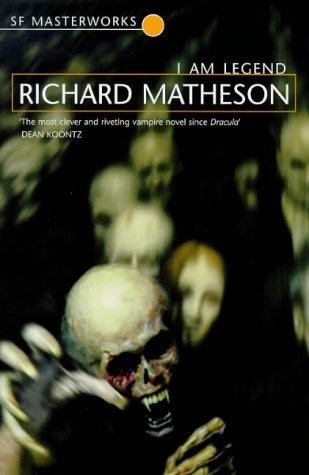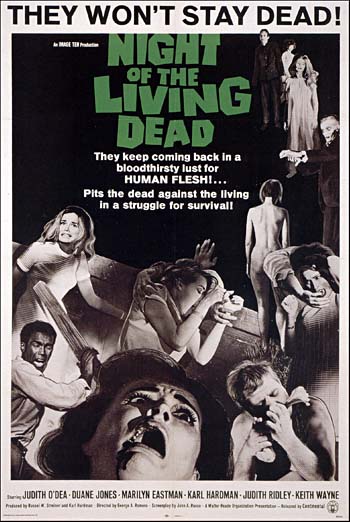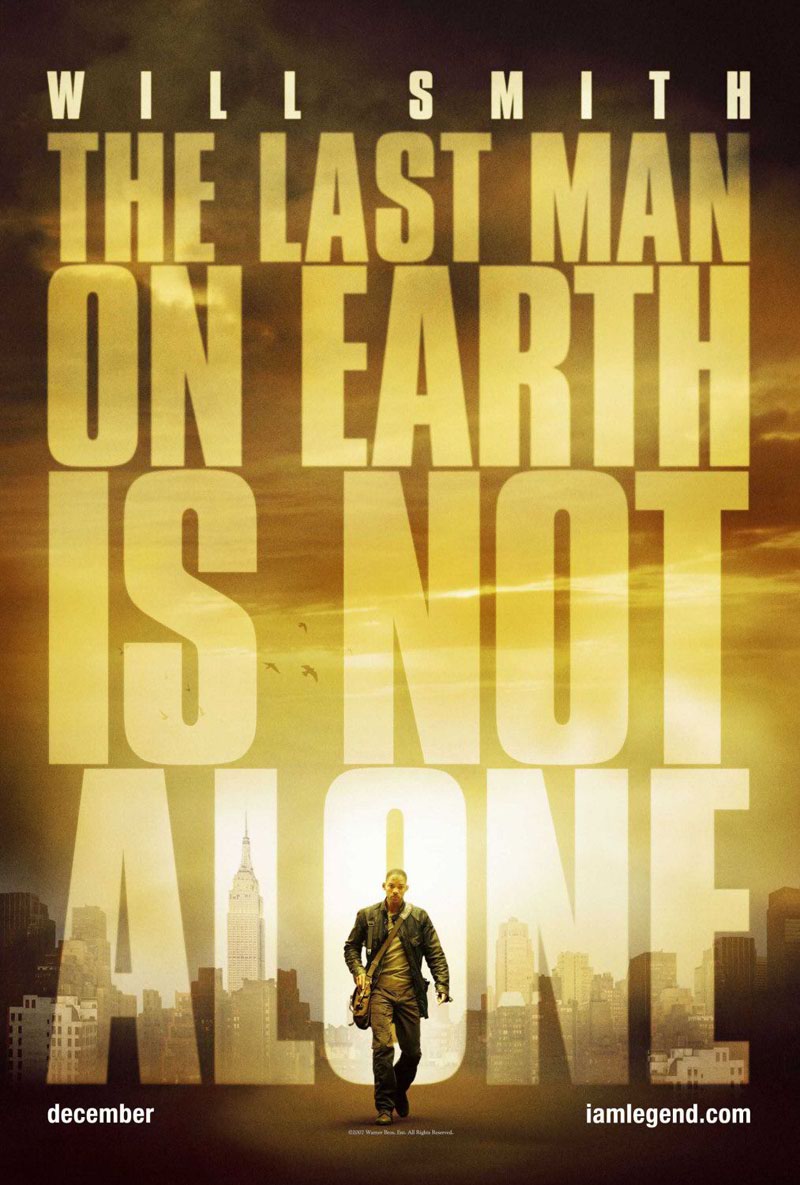I say “surprising” because I have read Richard Matheson’s original story and seen both film  adaptations, The Last Man on Earth (1964) and The Omega Man (1971). None of them contain overtly “spiritual” themes. Sure, they address issues of loneliness and society, the fragility of mankind. But God? No. However, with having followed this arc, how could I not see the 2007 installment?
adaptations, The Last Man on Earth (1964) and The Omega Man (1971). None of them contain overtly “spiritual” themes. Sure, they address issues of loneliness and society, the fragility of mankind. But God? No. However, with having followed this arc, how could I not see the 2007 installment?
According to the Wikipedia article, Matheson’s original story is
Notable as influential on the developing modern zombie genre, in popularizing the fictional concept of a worldwide apocalypse due to disease, and in exploring the notion of vampirism as a disease.
In the 2007 version, vampirism has been replaced by zombie-ism. But as is the case with most current zombie flicks, the lumbering brutes are no longer of the Night of the Living Dead variety. Thanks to 28 Days Later, zombies are now rabid speedsters. The same is true of Will Smith’s ’07 version. These diseased mutants froth and spaz and run faster than is humanly possible.
most current zombie flicks, the lumbering brutes are no longer of the Night of the Living Dead variety. Thanks to 28 Days Later, zombies are now rabid speedsters. The same is true of Will Smith’s ’07 version. These diseased mutants froth and spaz and run faster than is humanly possible.
But they look fake.
Once again, CGI takes away from the human element. And Will Smith does a good job of fleshing out the human element. He’s a military scientist who has unwittingly released a plague upon earth. What was to be a cure for cancer turns into an apocalyptic nightmare. The earth becomes overrun by translucent flesh-eating zombies. But Smith is on a mission to reverse the curse.
I’m withholding spoilers but, suffice to say, that Will Smith wants to “save” this pitiful horde. That a potential “cure” resides in his own blood is intriguing. Early on, with scenes of the city plunging into anarchy, we see glimpses of signs plastered with the phrase “God Still Loves Us.” This is a lot different from the street preachers in Children of Men who proclaim that God has abandoned the earth, and sets the tone for the film. As Smith’s wife and child are airlifted out of the city, she pauses to pray an extremely frank prayer for God to watch over them. Later in the story, Smith is conveniently rescued by a woman who boldly proclaims that “God told her” to come. They engage in several overt discussions about God’s hand in the whole mess. And, by the end of the movie, it is clear that the filmmakers have interwoven a Divine thread in this  apocalyptic tale.
apocalyptic tale.
I liked this movie a lot more than I expected. Yes, the scenes of a vast, deserted New York city are staggering. The stretches of isolation get a bit tedious, and the zombies are cartoonish. But Smith gives such a good performance, and the spiritual elements are so obvious, and really so natural to the subject matter, that I couldn’t help but be won over.
The movie poster says that “The Last Man on Earth is Not Alone.” But after seeing “I am Legend,” I found myself wondering if Someone other than zombies was watching over the leading man.















Gina Conroy and Johne Cook were making the same observations on Intersection. I’ve been wanting to see it but am wary because I don’t do well with scary. It tends to keep me up for nights. And nights. And nights. (So my hubby’s not a big fan of me seeing scary either.) But I may have to make an exception for this.
Thanks, Heather! And let me take this opportunity to refer my readers to Intersection — a terrific site for discussions concerning art and theology that Heather hosts.
Oops! Here’ the link to Intersection.
I’m interested in this one. I feel Will Smith is a better actor than people think. He was very good in the Pursuit of Happyness.
Interesting. I haven’t seen it, but Chelsey and friends did (while I was in one theater watching Alvin and the chipmunks– which by the way had no overt spiritual themes I noticed– with my little ones, she and her 3 friends were seeing I Am Legend in another.) Chelsey, who does well with thrillers and scary, thought it was great. Her friends, who went because Will Smith is “hot” seemed mildly traumatized:) Maybe I’ll tell Chelsey what my friend Mike said about the movie. You nover know; maybe it’ll be a CONVERSATION.